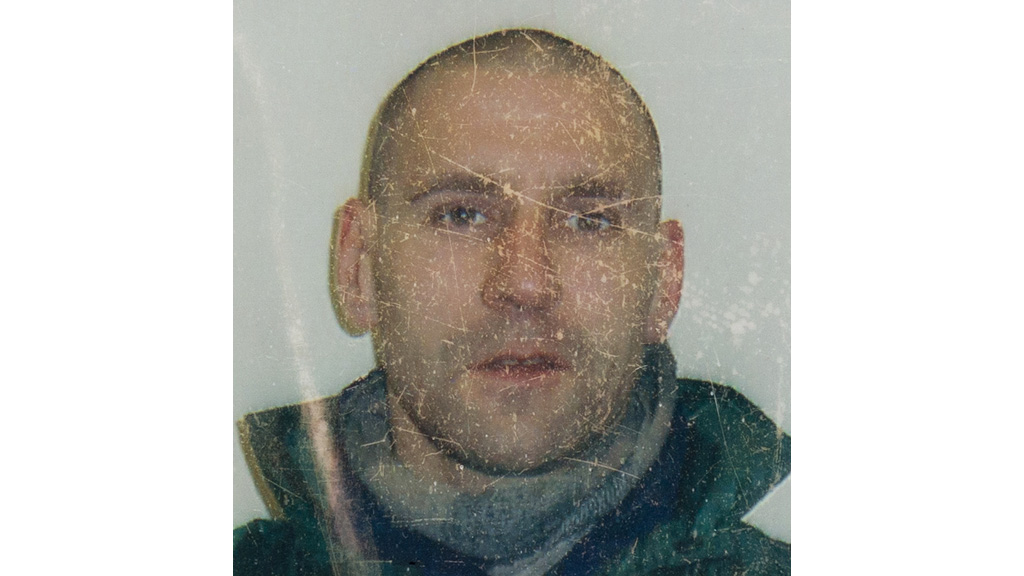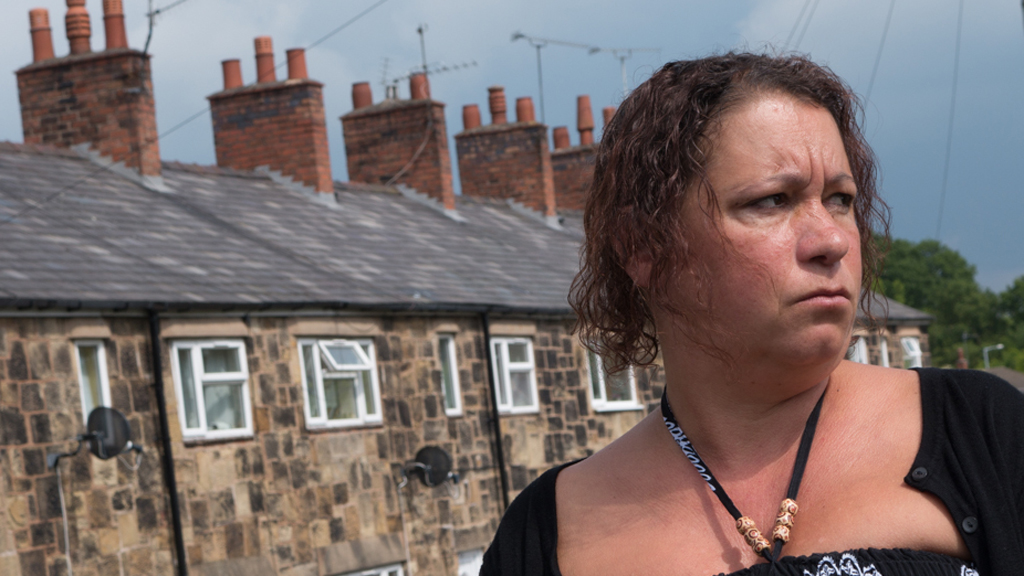Police fail woman attacked with hammer by convicted rapist
 Andy Davies
Home Affairs Correspondent
Andy Davies
Home Affairs Correspondent
A woman smashed repeatedly in the face with a claw hammer by her convicted rapist partner, out on licence from prison, was “let down” by South Wales Police, a report seen by Channel 4 News has found.
The Independent Police Complaints Commission (IPCC) has criticised South Wales Police for failing a domestic abuse victim who was seriously assaulted by her partner with a hammer, after she had appealed repeatedly to the police for protection.
In its 70 page report, as yet unpublished but a copy of which has been seen by Channel 4 News, the IPCC investigation identifies a “continuing thread of low level performance” in police actions leading up to the harrowing assault in August 2011.
Rape conviction
The victim, Charmaine, who has asked Channel 4 News not to disclose her surname, suffered serious facial and head injuries during the attack which was witnessed by her 10-year-old daughter and 16-month-old son. She says she realised her partner had a previous conviction, but thought it was for armed robbery. She claims that although she was aware he resided in a bail hostel, she had no idea he’d actually been convicted of other crimes, including rape and false imprisonment.
Charmaine had reported Christopher Veal to the police for assault three days before the final violent attack, as well as on the day itself, saying she didn’t want to “get beaten any more” and couldn’t return home.
Yet an officer from South Wales Police, who had failed to make appropriate checks on Veal’s background, drove Charmaine and her children back to her flat in Cardiff, leaving them alone. Moments later Veal, who was on the sex offenders’ register, smashed his way in through the front door, hitting his partner with a hammer and kicking her repeatedly until she lost consciousness. He then dialled 999, shouting: “Get the police now…there’s been a murder.”
Hanged
Veal was subsequently recalled to prison. He hanged himself two months later in a shower room before he could stand trial for the attack on Charmaine.
In her first interview about the case, Charmaine told Channel 4 News she felt “ignored” by the police. “I trusted the police to help me,” she said. “They knew he was a rapist… and they sent me home. I trusted them to look after me and my children. I’ve been let down. My children have been let down. They’ve seen some horror film which no children should have ever seen.”
She first reported Christopher Veal to the police on 26 August 2011 after a confrontation in which, she says, he grabbed her around the throat, punched her in the eye and then dropped her to the floor. Police officers arrived at the flat soon afterwards, by which time Veal had fled.
Dangerous
Although police databases contained a record of Veal as a registered sex and dangerous offender, with previous convictions for rape, false imprisonment, weapon possession and wounding, the IPCC investigation notes that “limited efforts” appear to have been made to apprehend him at that stage. And yet South Wales Police were partly responsible for monitoring Veal while out on licence.
He kept hitting me… I remember him standing behind me and the hammer coming in front of my face and knocking my teeth out. Charmaine
Three days later, on 29 August, Veal returned to the flat, and as Charmaine recalls, pinned her down on the sofa and told her to “drop the charges”. Highly distressed, she took her children to a nearby village, called 999 and requested the police come and get her as she was scared and “unable to go home”.
However, even though she had by now been classified as a high risk victim of domestic violence and despite repeated 999 calls, it would take the police two and a half hours to get to her and her children. This delay was “unacceptable”, the IPCC report states.

By the time they’d reached a local police station, and with Veal (pictured above) repeatedly phoning Charmaine, the officer dealing with her case called Veal’s mobile. He warned him to stop harassing Charmaine and to turn himself in, but in so doing also confirmed to Veal that a complaint had been made against him.
Increased risk
This conversation, the IPCC report says, “must also have served to increase the risk faced by [Charmaine] given that her partner was now made aware of her presence at the police station and her continued intention to further her complaint of assault”.
Remarkably, the same officer failed to undertake any intelligence checks on Christopher Veal and was therefore completely unaware of his status as a dangerous sex offender with previous convictions for wounding.
The police officer was “undoubtedly placed in a complex situation”, concludes the IPCC report, but his failure to make the appropriate background checks before taking Charmaine and her children home, placed them in “an unacceptable situation”. It also meant he placed himself at risk, the IPCC reports says.
Warning: you may be distressed by the events described in the video above
After being dropped back home, Charmaine recalls hearing one lift descend with the departing officer, as another lift door opened. She then remembers a “massive bang” as Veal burst through the front door.
“There was my partner with a claw hammer. He said, ‘Come here, you bitch’, and he smashed me with a hammer. He kept hitting me, I tried to run out on to the veranda to scream… and whilst he told my daughter to stop her brother from screaming he carried on hitting me… I remember him standing behind me and the hammer coming in the front of my face and knocking my teeth out.” She lost consciousness.
The IPCC investigation found that although certain basic safety measures had been put in place by the police for Charmaine, there was “a continuing thread of low level performance” in the actions undertaken by numerous police officers and members of police staff.
Criticised
Seven individuals are directly criticised over failures to “access and process relevant information appropriately and to highlight the risks associated with Mr Veal”, including three 999 control room staff, two officers who dealt directly with Charmaine, and two officers from the local public protection unit.
The police constable who took her home before the hammer attack “has a case to answer for in respect of misconduct,” concludes the report. Of the others criticised, two have left the force and have therefore “not been asked to account for their actions”.
The IPCC has recommended South Wales Police reviews its training for first responders and supervisors in managing domestic abuse situations, particularly where children are involved.

The watchdog also says the force should review how it trains officers to access and use information systems. The IPCC says all the intelligence relating to Veal had been correctly documented and recorded on to databases.
“However,” it adds, “there can be little benefit in a police force having information systems in place to record the offending history and intelligence [relating to an individual] if these systems are not utilised to their full capacity and the relevant of the information held is not recognised.”
It’s not just about her and it’s not just about justice for her family, it’s also about any other woman or man who reports a case of domestic violence. Susan Elan Jones MP
South Wales Police is criticised for its “overall supervision” of Charmaine’s case. Deputy Chief Constable Matt Jukes said: “It is clear that we did not provide the victim in this case and her children with the care and protection that she needed at a critical time and we are sincerely sorry for that.
“Over recent years we have worked incredibly hard to improve our response to incidents of domestic abuse and whilst this has come too late to support the victim in this case, we have good evidence that it is providing a much improved response to victims of domestic abuse now, helping to keep them safe.”
However, South Wales Police may struggle to explain why the force failed to refer the case to the IPCC on the day the second assault took place (as is mandatory in cases where serious injuries have followed police contact).
IPCC not informed
It’s emerged that the IPCC was not informed about this case until 15 months after the events when Charmaine herself tracked down her MP, Susan Elan Jones, to pursue her complaints, most of which have been upheld by the police watchdog.
The failure of the police to refer this incident to the IPCC is described by the MP as “immensely concerning”. Ms Jones also says the “totally harrowing” case raises very serious questions.
“I think Charmaine is an immensely courageous woman, but as she herself would say, it’s not just about her and it’s not just about justice for her family, it’s also about any other woman or man who reports a case of domestic violence. They’ve got to know that their case is being treated seriously and that the proper procedures are in place.”
The IPCC is expected to publish a statement on Charmaine’s case on Wednesday.